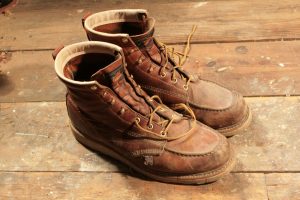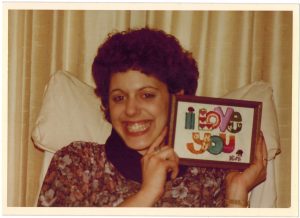This is the first in a series of short stories that are backstory for my next novel, a mystery with twist of magical realism. Enjoy!
Packed to the gills with frozen crawdads bound for Canada, Frank Gunn met up with Tommy G and Big Billy under the I-40 overpass outside of town. Frank was taking his weekly hike to Vancouver from Memphis, and he needed the dope for Dr. Dre, their kingpin over the border. Frank liked the long route, got him through the week, it did. Spat him out on Sunday.
He pulled his rig all the way over to the gray-grime smeared cantilever to keep it out of sight next to an old Budget-Rent-A-Car sign missing all its vowels. The dim blue numbers on the dash read 3:23 a.m. as Frank cracked the window. Seven minutes til touchdown. Click. He flicked his Bic and lit a Marlboro. It had rained round suppertime and the puddles in the pitted gravel smelled like shit. Frank dragged on his cigarette to cover the stink and waited for his boys to show up. In the center console he had a supersize bag of Swedish fish, and between drags, he ate one. He killed the engine and listened to the plink plink plink of water droplets falling from the bridge above. Only traffic at this hour was the occasional rig grumbling by. Plink plink. Frank puffed on hot smoke and nicotine and wondered what had held up his boys. The rain had done nothing to stifle the heat, and a slick bead of sweat trailed down Frank’s back beneath his t-shirt. Plink.
Down the way Frank watched a shadow approach and his heart did a nosedive into his gut. A bum with a cart full of paper sacks began to traverse the overpass canyon. “No, no, no,†he muttered to no one. It was not the time for this. Frank slunk down low, not wanting to be seen round these parts. “No eyes, no guise,†Dre always warned. Cops knew to look for shit like sunglasses at night, ball caps outside the park, coats in summer. Frank kept his work clothes simple. A plain white tee, nice-ish jeans, black belt with the winged buckle his sister had made special for him when he got on the wagon. His studded boots. He kept his bandana on the rearview with the amethyst his old girlfriend Amanda had given him, “for your heart,†she’d told him. Best keep clear of the bling till he was outside of Memphis. Cops were the shit and Frank knew it.
The canyon was large, and the bum still had quite a bit of space to cover. Frank watched him in his side mirror, a male of indeterminate age, scraggly gray beard sweeping his emaciated belly. Frank eked out a bit of smoke, angling for the floor space, when he heard a yap. Bum had a dog in his cart. Christ.
“There, there, Zelda,†the bum said to the canine in his cart. Frank wished the bum would keep his yapper shut. He worried the duo would blow the whole shebang. And he should be on the road by now.
The bum shuffled along so slow that Frank doubted he’d ever get across at all. He could see the man’s bulging wrinkles and bulbous eyes in the horrid yellow light. He had crow’s feet, Frank noticed, and the thought of this old guy living long enough and happily enough for life to carve out laugh lines on his face, that though gave Frank pause. He scootched up a bit, silently urging the bum to please, Lord, pick up the pace and get the hell out of harm’s way before Big Billy turned up with his old bazooka-lookin self-defense mechanism and blew the guy a new one. He took a long drag and waited for the nicotine to soothe his frazzled nerves. Small favor.
The guy stopped about halfway across, alongside the rig, and started futzing with his cart. Of course just then Frank saw his boys coming down the shadowed frontage off the highway. He slunk down a little lower, a lungful of hot smoke clutched in his chest waiting for clearance to exit. Plink plink plink. The cart scraped pavement. A witness was not gonna fly with the boys. He flashed his headlights, just once, and Tommy G laid off the gas, cut the lights. Good boy. Darkness save for the dingy acid yellow glow off the highway above.
Time to flee for your life, buddy, Frank willed the bum. Okay, okay. Tommy had a heart, but Big Billy had a trigger finger the size of a football-game inflatable. Plink. Frank crushed his cigarette on the dash and tried to think of how to play this. Plink plink. The last thing he wanted was for anybody to get hurt. Like he usually did in situations like these, he visualized himself Sunday morning, hitting the Tennessee line, gospel on the radio, his windows down. Free as a breeze. Amanda was the one taught him that little trick. Visualization. Before her, Frank had been a real hothead. He’d’ve been out of the truck and on the guy like cheese on a steak trying to save him, way back when. Nowadays he could handle things better. More enlightened, Amanda used to say, sorta proud-like, before she ran off on him with John, the guru.
Frank touched the amethyst dangling from his rearview and willed the bum to safety. He punched Tommy G’s number on speed dial, and waited for the call to connect like watching an hourglass run down. Yip yip yip. He was too old for shit like this, Frank thought. When times got tough, he always thought about throwing in the towel, trading the rig in for a classic convertible and heading down to Me-hi-co. Not today, though. The call went through.
“What’s with gramps here?†Tommy G had a New York whine.
“Tell Billy to cool it, K?†Frank tried to keep his voice calm. Amanda would have been proud. “Old guy’s on his way out. Let’s not make trouble.â€
“Gunn, you know I’m just the driver.†Tommy G was always the realist.
“Do what you can, Tommy.†Frank kept an eye on the bum. He was feeding the dog from a crumpled Mickey D’s bag. “He’s got a dog, for Christ sake.†Flee for your life, man, Frank silently willed the bum.
“Ten-four, captain.†Tommy clicked off. Down the frontage road, a set of headlights momentarily illuminated the van, nondescript, formerly white. Frank’s eyes went to the windshield, to the twin halos. Angels, the both of them. Plink Plink. Big Billy had his gun out, Frank could just make out the barrel through the glass. His heart leapt into his mouth as the bum stuffed a fry into his mouth. Yip. The dog barked its displeasure. Somewhere a siren sounded. The headlights passed away, plunging the cavern back into darkness.
Frank’s nerves blitzed as he saw the passenger-side door open a small silent crack. There was no sound save for the incessant plink plink plink of the dripping overpass. A spare yap the starting gun on a slow-motion unfolding, a moment by moment awareness that would have pleased Amanda if she were inside his head right now. Frank watched in horror as Billy’s barrel appeared in the jam of the door. The cock of the hammer got the bum’s attention, and he looked back over his shoulder, one lazy eye at a time, a single fry dangling from his chapped lips. No doubt he’d heard that song before.
Frank stared, watching the first bullet exit the barrel and begin to traverse the canyon, astonishing as the expedition of a falling star. The NO emerged from his throat one atom at a time, his tongue undulating from his teeth to the chasm of his windpipe, his lips traversing the gulf from loose to tight as they formed the final O. The sound sliced through all the silence and Tommy’s look cut through the dark. Still the bum continued his foolhardy glance of curiosity. Don’t look back. Never look. His hand fisted on the steering wheel, ready to pounce, Frank watched the bullet charge through the canyon. The last vestige of his self-possession flew out the cracked window, when the bum disappeared.
No. Not disappeared. Morphed. The bum lost his human form. Where a moment ago a human being stood, now there was a sagging concrete balustrade, its face pocked, its gray paint chipped. Frank’s blink took a million years.
YIP. Â Â Â Â Â Â YIP. Â Â Â Â Â Â YIP. Â Â Â Â Â Â YIP.
Each bark was punctuated by a whiz and a crunch. Chunks of concrete flew as each bullet hit its mark. Frank slid all the way below the dash, though he knew he was in no danger. Big Billy was an excellent shot. He watched the balustrade crumble next to his rig, felt the rain of cement on his hood. His heart went out to the bum and his helpless pup. He bided his time, inhaling only in the silences between rounds. Big Billy fired eight shots total, then he slumped back into his seat and hooted out his window. Plink, yap yap yap whine. Plink.
Tommy G got out of the van and went around back. He flung the doors wide and emerged carrying two large gym duffels. Big Billy slid out of the passenger seat, his gun aloft like his namesake the Kid. He eyed the lump of destroyed concrete with obvious pride. Frank slowly exhaled as he slid out of the rig, pushing his door all the way open as a shield. Shards of fries laid on the ground like severed fingers. The bum’s cart was still intact, and the dog, a bridle terrier, was standing on top of the paper sacks, crying her heart out. In one swift movement, Frank grabbed her by the scruff and tossed her gently onto the floor of his cab. She went silent.
He unlocked the cubbyhole in the side of his cab, removed the tire iron and spare, and stepped aside as Tommy slid the duffels into the space behind the secret panel. He unzipped the bags to show him the shit. Ketamine and X this time. Frank knew the deal. Pick your poison. A heck of a lot of somebodies were going home happy next week. He nodded.
As Tommy pulled his head out of the hole, he met Frank’s eyes. They darted to the bullet-marked pile of rubble that moments ago had been a laughing-eyed bum.
“Real sorry, man.†Tommy was not one for overt shows of emotion, so this was huge for him. Frank slapped him hard on the shoulder, once. They had a moment, no more than a split second, but it was enough. “Tell the Doc we’s set for next week. 60 K of H, yeah, and a bundle of oxy.†Tommy G was a middle man, segueing whatever his suppliers brought up from Mehico. He stepped back and Frank shut the door and did the padlock.
“Will do,†Frank said, and they both looked past the rubble to where Billy was standing next to the van, on the lookout with his gun.
“Outta here, man,†Tommy said, and slapped the rig as a goodbye. “Safe travels. See ya next week.â€
“Yep.†Frank waited for Tommy and Billy to pull off, then said a quick Hail Mary for the bum, not wanting to admit that he was giving it a minute to see if the bum returned to his human form. Nah, nothing. Afterlife was afterlife, Frank guessed. Still made him sad, though. When he hopped back in the cab, he found the dog sitting in his seat, three Swedish fish dangling from her tiny jowls. He gave her a pat and pulled his amethyst from the rearview mirror. He draped it over the balustrade, thinking that Amanda would be proud.
Frank set the dog in the passenger seat and pulled the rig back around to the frontage road, careful to avoid the mess of concrete.
“Sorry, pup. I wish I could have saved him.†The dog whimpered. The sky was just beginning to tinge gray with dawn.



